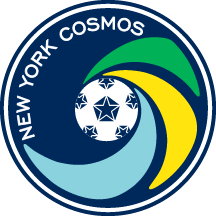News
45th Anniversary of the Cosmos' First NASL Championship

Forty-five years ago, on August 26, 1972, the Cosmos won the first North American Soccer League Championship in the club’s history.
The club’s second season in the league saw the Cosmos move from Yankee Stadium in the Bronx to Hofstra Stadium in Hempstead, where the New Yorkers’ unbeaten home Regular Season record of six wins and one draw propelled them into a first-place finish and homefield advantage throughout the playoffs. The Cosmos had a mediocre record of one win, three losses and three draws on the road, but Hofstra had become a fortress for the Cosmos, and that advantage carried over in the semi-final defeat of the Dallas Tornado to set up the Final against the St. Louis Stars on August 26, 1972.
A crowd of 6,102 fans braved a downpour to cheer the Cosmos against the St. Louis Stars in Hempstead. Cosmos forward, Josef Jelinek, still savors the vivid memory of the championship game: “That’s never going to go away. I remember the St. Louis Stars; Mike Winter was the goalie.”
Winter, who was left out of the US Olympic squad in Munich that featured Shep Messing in goal, had finished the 1972 season as the NASL Rookie of the Year. He faced an attacking Cosmos side that took 28 shots throughout the contest. The Cosmos were the NASL scoring leaders in each of their first two seasons, and that commitment to attacking play was rewarded in the 5th minute, when Israeli winger, Roby Young, sent a corner kick towards Randy Horton, the towering striker from Bermuda. Horton rose above the St. Louis defense and headed the ball off the crossbar and past the diving Winter.
The Cosmos dominated with a persistent attack throughout the first half, but relaxed the pressure somewhat after intermission. Recalls Horton: “We were the better team and deserved to win. I scored the first goal. We had good control of the match, then suddenly…” Seven minutes into the second-half, St. Louis player-coach, Casey Frankiewicz, scored on a pass from John Sewell that was initially disallowed as offside from referee, Roger Schott. But the Stars appealed the verdict, and after consulting linesman, Bill Maxwell, Schott reversed his decision and allowed the visitors’ the equalizer.

The adversity reenergized the Cosmos’ attack, but the score remained level until the 86th minute when New York’s midfield general, Scotsman Johnny Kerr, was fouled in the penalty area.
Recalls Jelinek: “Gordon Bradley pointed to me and pointed to the penalty spot to take the shot. And I did. I was a bit shaky, because, you know, everybody says a penalty is easy – particularly in games like this, they expect you to score – but it’s a little bit nerve-wracking, you know! I put it exactly to the right side of the goalkeeper. The ball was already in the net when he dove.”
Still, the Stars didn’t surrender and the game’s dying moments were furious as St. Louis struggled desperately for another equalizer. In the 88th minute, Werner Roth received a red card, and the Cosmos had to defend their slim lead with just ten men. With just thirteen-seconds left, Willie Roy seemed to have scored the second goal for St. Louis, but referee Schott ruled it offside and this time St. Louis appeals were futile.
The Cosmos had won their first NASL Championship game. “It was no surprise that we won,” insists Horton (now Speaker of the House in his native Bermuda). “We deservingly won that match.”
Captain Barry Mahy, like Jelinek and Young, still a New York resident, lifted the club’s first NASL Championship trophy in front of the home fans in Hempstead, the first of eight league titles for the club that would become the most dominant force in North American soccer history. Forty-five years later, their legacy lives on as inspiration for the current defending NASL Champions.



